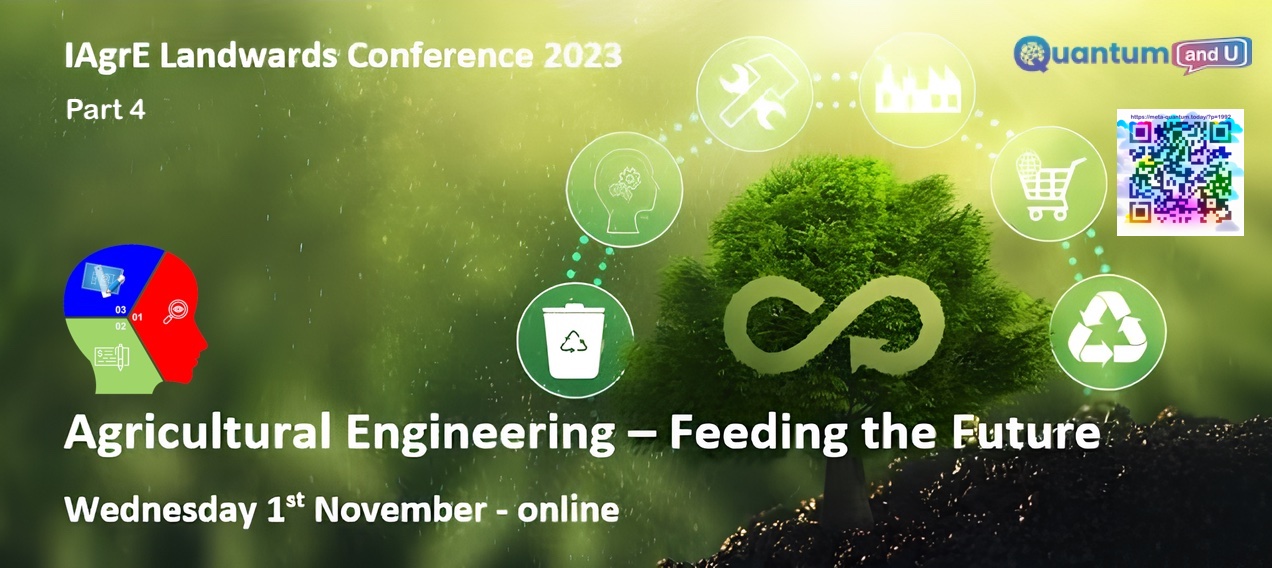
Introduction:
The YouTube video titled “(389) IAgrE Landwards Conference 2023 – Feeding the Future Part 4” features Kirsty Pilcher from AGCO, a highly skilled and knowledgeable professional in the field of agriculture. With over 20 years of experience, Kirsty Pilcher is a chartered environmentalist who has dedicated her career to promoting sustainable practices in the agricultural industry.
In this comprehensive review, we’ll delve into AGCO’s innovative sustainability strategy and how they are successfully integrating smart agriculture throughout the entire value chain. By leveraging cutting-edge technologies and industry-leading expertise, AGCO is paving the way for a more sustainable and efficient future in agriculture.
For More Details about Conference Part 1: Click here
For More Details about Conference Part 2: Click here
For More Details about Conference Part 3: Click here
Part 4 video of the Conference 2023:
Related Sections of the part 4 Video:
- Company Overview:
- AGCO, a global organization founded in 1990 through acquisitions.
- Operations span North America, South America, the Middle East, Europe, Australia, and the Far East.
- Commitment to providing farmer-focused solutions and integrating sustainability into product design, manufacture, and distribution.
- Decarbonization Strategy:
- Overview of the three key areas of emissions: scope one, scope two, and scope three.
- Emphasis on the Paris Agreement’s goal to limit global warming to 1.5 degrees above pre-industrial levels.
- The challenge of feeding a growing global population (estimated 10 billion by 2050) while addressing agriculture’s role as the second-largest emitter of greenhouse gases.
- Emission Reduction Initiatives:
- Discussion of AGCO’s efforts to reduce greenhouse gas emissions, focusing on scope one and two emissions.
- Noteworthy achievements in reducing emission intensity and increasing renewable energy usage.
- Emphasis on the shift from voluntary to mandatory disclosure of sustainability performance.
- Scope Three and Net Zero Ambitions:
- Recognition of the limited impact of scope one and two emissions (1% of overall emissions).
- Acknowledgment of responsibility for scope three emissions, including the emissions associated with purchased goods and services.
- AGCO’s long-term ambition to align with net-zero emissions by 2050.
- Renewable Energy Strategy:
- The importance of energy conservation and process efficiency.
- AGCO’s investment in renewable energy projects, including solar PV and ground-source heat pumps.
- Exploration of onsite and off-site renewable energy options, with a target of 60% renewable energy use by 2026.
Conclusion:
In conclusion, AGCO’s sustainability aligns with global efforts to combat climate change. Kirsty Pilcher outlines the company’s commitment to reducing emissions across the value chain, emphasizing internal initiatives and collaboration with external partners. AGCO’s roadmap for the coming years includes targets for emission reductions, renewable energy use, and a strategy for addressing scope three emissions. As the agriculture industry grapples with its impact on climate change, AGCO’s proactive approach stands out.
Takeaway Key Points:
- AGCO’s commitment to sustainable agriculture across the value chain.
- Efforts to reduce emission intensity and increase renewable energy usage.
- Long-term ambition to achieve net-zero emissions by 2050.
- Emphasis on addressing scope three emissions and the impact of purchased goods and services.
- Strategy for renewable energy procurement, including a target of 60% renewable energy use by 2026.
References:


